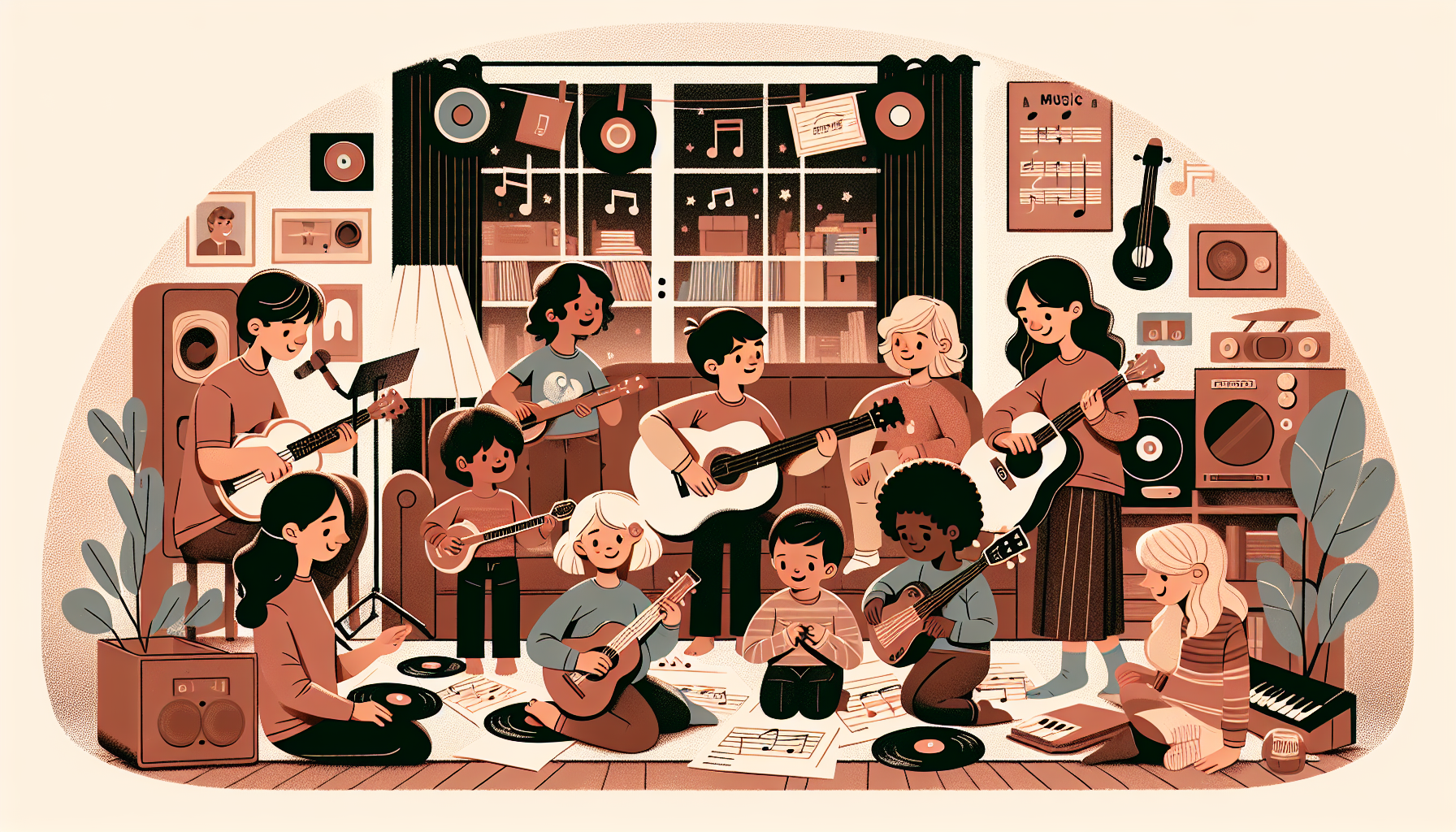“`html
Encouraging Musical Interests in Children: A Parenting Guide
Music has a remarkable ability to inspire, connect, and heal. For children, it offers more than just entertainment—it’s a powerful tool for emotional expression, cognitive growth, and personal development. As parents, fostering musical interests in children can shape their creativity, build their confidence, and strengthen the parent-child bond. In this article, we’ll explore the importance of music for child development, backed by research, and provide actionable parenting tips to encourage this interest.
Why Encouraging Musical Interests in Children is Important
Musical interests can play a significant role in a child’s overall growth. Studies show that engaging with music supports a range of developmental milestones, from language acquisition to emotional regulation. Encouraging your child to explore music can help them in the following ways:
- Boost Cognitive Skills: Research indicates that learning music enhances memory, attention span, and problem-solving abilities.
- Foster Emotional Expression: Music provides children with a safe outlet to express their feelings, which is crucial for emotional well-being.
- Promote Social Skills: Group activities like singing in a choir or playing in a band teach teamwork, cooperation, and empathy.
- Encourage Creativity: Engaging with music sparks imagination and self-expression, helping children discover their unique talents.
As parents, understanding the psychological needs of your child—such as the need for safety, autonomy, and self-expression—is essential. Music can cater to all these needs, creating a nurturing environment where your child feels valued and inspired.
How Music Supports Child Development
The connection between music and child development is backed by science. Here are some key ways music contributes to a child’s growth:
1. Cognitive and Language Development
Music activates multiple areas of the brain, particularly those involved in language processing and memory. Singing songs with your child can help them learn new words, improve pronunciation, and develop a stronger grasp of language structure. According to a study, children exposed to music from an early age show advanced auditory skills and better academic performance.
2. Emotional Regulation
Music has a profound impact on emotions. It can soothe anxiety, uplift moods, and even help children process complex feelings. Incorporating music into daily routines—such as playing calming tunes during bedtime—can help children feel safe and secure.
3. Encouraging Patience and Discipline
Learning to play an instrument requires practice, patience, and perseverance—all valuable life skills. Regular practice sessions teach children the importance of discipline, setting goals, and working towards them.
4. Building Social Connections
Participating in musical groups fosters a sense of belonging. Whether it’s joining a school choir or attending music classes, these activities help children build friendships and enhance their interpersonal skills.
Practical Parenting Tips to Encourage Musical Interests
Now that we understand the benefits of music for child development, let’s look at some practical ways you can nurture your child’s musical interests.
1. Create a Musical Environment at Home
Surround your child with music by playing a variety of genres at home. Invest in simple musical instruments like tambourines, maracas, or keyboards. Encourage your child to experiment with these instruments and create their own tunes. This not only enhances creativity but also fosters a love for music.
2. Attend Live Performances Together
Take your child to concerts, musicals, or community performances. Seeing musicians perform live can be incredibly inspiring and might spark their interest in learning an instrument or singing.
3. Enroll Them in Music Classes
If your child shows a keen interest in music, consider enrolling them in formal music classes. Whether it’s piano lessons, guitar instruction, or vocal training, structured learning can help them develop their skills and boost their confidence.
4. Encourage Self-Expression
Allow your child to choose the type of music they want to explore. Whether it’s jazz, classical, rock, or pop, giving them autonomy in their choices fosters a sense of independence and ownership over their interests.
5. Make Music a Family Activity
Incorporate music into your family’s daily life. Sing songs together, have dance parties, or create a family band. These activities not only make music fun but also strengthen the family bond.
6. Celebrate Their Efforts
Encourage your child’s musical journey by acknowledging their progress and celebrating their achievements. Whether it’s performing at a school recital or mastering a new song, positive reinforcement boosts their confidence and motivates them to keep going.
7. Use Music to Address Emotional Needs
Music can be a powerful tool for emotional connection. If your child is feeling stressed or overwhelmed, play calming music to help them relax. Similarly, upbeat tunes can be used to energize and uplift their spirits.
Overcoming Challenges in Nurturing Musical Interests
While encouraging musical interests in children is rewarding, it’s not without its challenges. Some children may lose interest quickly, feel discouraged, or resist structured learning. Here are a few tips to overcome these hurdles:
- Be Patient: Understand that it’s natural for interests to fluctuate. Encourage exploration without pressuring your child.
- Keep It Fun: Focus on making music an enjoyable experience rather than a chore.
- Adapt to Their Needs: If formal lessons feel too rigid, explore alternative approaches like music apps or online tutorials.
Conclusion
Encouraging musical interests in children is a meaningful way to support their development, nurture their creativity, and strengthen your relationship with them. By creating a musical environment, fostering self-expression, and celebrating their efforts, you can help your child discover the joy of music while building essential life skills.
Remember, the goal is not to turn your child into a professional musician but to use music as a tool for growth and connection. With patience, encouragement, and the parenting tips shared in this guide, you can help your child embark on a lifelong journey of musical discovery and self-expression.
For more parenting tips and insights into child development, explore our resources.
“`

